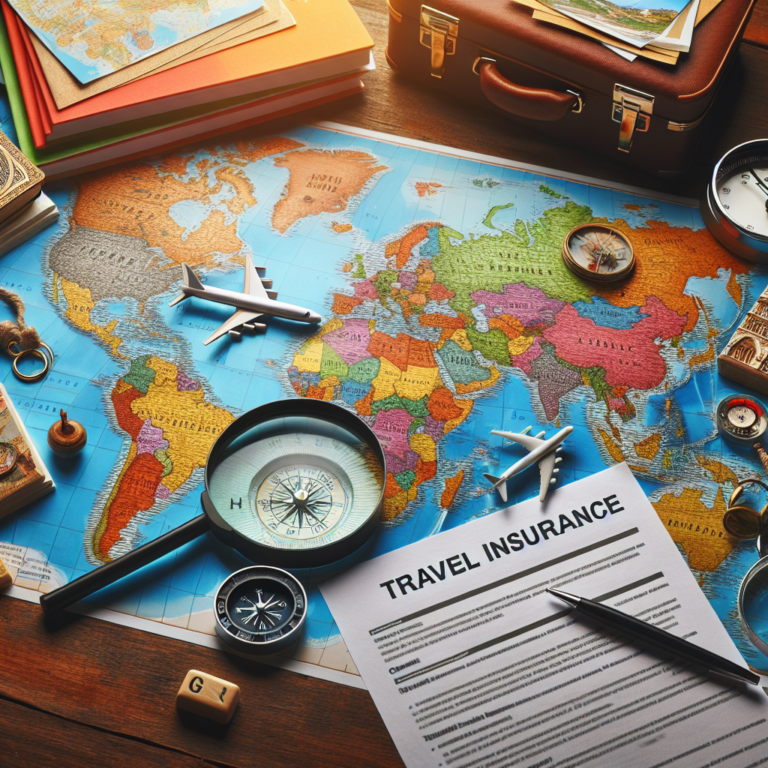Traveling is an exciting and enriching experience that allows you to explore new cultures, cuisines, and landscapes. However, no matter how well you plan your trip, unexpected events like flight cancellations, lost baggage, or medical emergencies can still occur. That’s where travel insurance comes in – it can provide you with financial protection and peace of mind in case something goes wrong during your travels.
But navigating the world of travel insurance can be overwhelming, with so many options and terms to consider. This comprehensive guide aims to help you understand the basics of travel insurance and make an informed decision when choosing a policy for your next trip.
Types of Travel Insurance
There are several types of travel insurance policies to choose from, depending on your needs and budget. Here are the most common ones:
1. Trip Cancellation Insurance: This type of insurance covers the costs of canceling or interrupting your trip due to unexpected events like illness, natural disasters, or terrorist attacks.
2. Emergency Medical Insurance: This provides coverage for medical expenses incurred while traveling, including hospital stays, doctor’s visits, and emergency medical evacuation.
3. Baggage and Personal Belongings Insurance: This type of insurance reimburses you for the loss or damage of your baggage and personal belongings during your trip.
4. Travel Delay Insurance: If your trip is delayed due to reasons like bad weather or airline strikes, this insurance can cover additional expenses like accommodation or transportation.
5. Rental Car Insurance: This insurance covers any damages to rental cars or theft during your trip.
6. Adventure Sports Insurance: If you plan to engage in activities like scuba diving, skiing, or rock climbing, this insurance provides coverage for any injuries or accidents that may occur.
Factors to Consider when Choosing a Policy
When choosing a travel insurance policy, there are several factors to consider to ensure you have adequate coverage:
1. Destination: Some insurance policies may not cover certain destinations or regions that are considered high-risk. Make sure to check if your destination is covered under the policy.
2. Pre-Existing Medical Conditions: If you have pre-existing medical conditions, make sure to disclose them when applying for travel insurance to avoid any complications in case of a medical emergency.
3. Coverage Limits: Check the coverage limits for each type of insurance and make sure they meet your needs. For example, if you are traveling with expensive equipment, make sure the baggage insurance coverage is sufficient to replace them in case of loss or damage.
4. Policy Exclusions: Read the fine print of the policy to understand what is excluded from coverage, such as extreme sports, acts of terrorism, or pandemics.
5. Deductibles and Premiums: Consider the deductibles and premiums of the policy to determine if it fits your budget. A higher deductible may result in lower premiums, but you will have to pay more out of pocket in case of a claim.
Tips for Buying Travel Insurance
1. Buy Early: It’s best to purchase travel insurance as soon as you book your trip to ensure coverage for any unforeseen events that may arise before your departure.
2. Compare Policies: Shop around and compare different insurance companies to find the best coverage at the most competitive rates.
3. Read Reviews: Look for reviews and ratings of insurance companies to check their reputation and customer service.
4. Consider Annual Policies: If you travel frequently, consider purchasing an annual travel insurance policy that covers all your trips within a year, which may be more cost-effective than buying separate policies for each trip.
In conclusion, travel insurance is an essential investment that can provide you with peace of mind and financial protection during your travels. By understanding the different types of insurance, factors to consider, and tips for buying a policy, you can navigate the world of travel insurance confidently and make informed decisions that suit your needs and budget. Happy travels!
